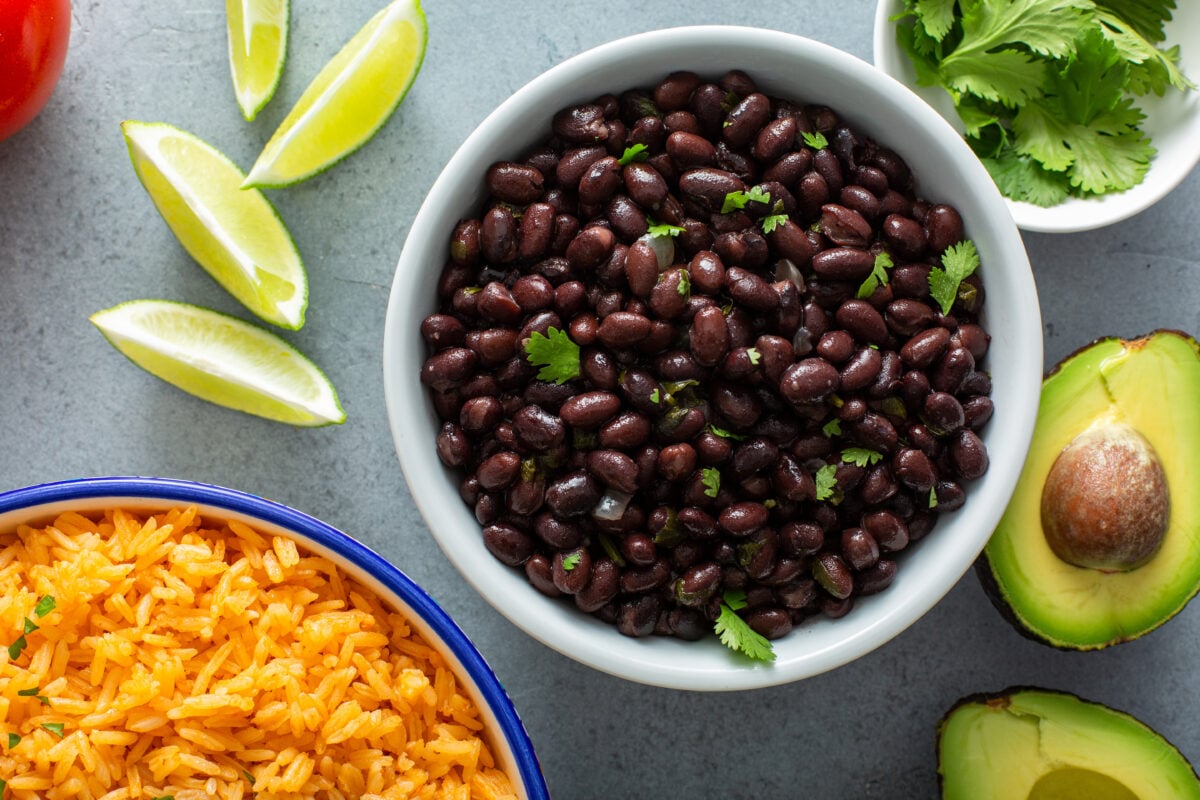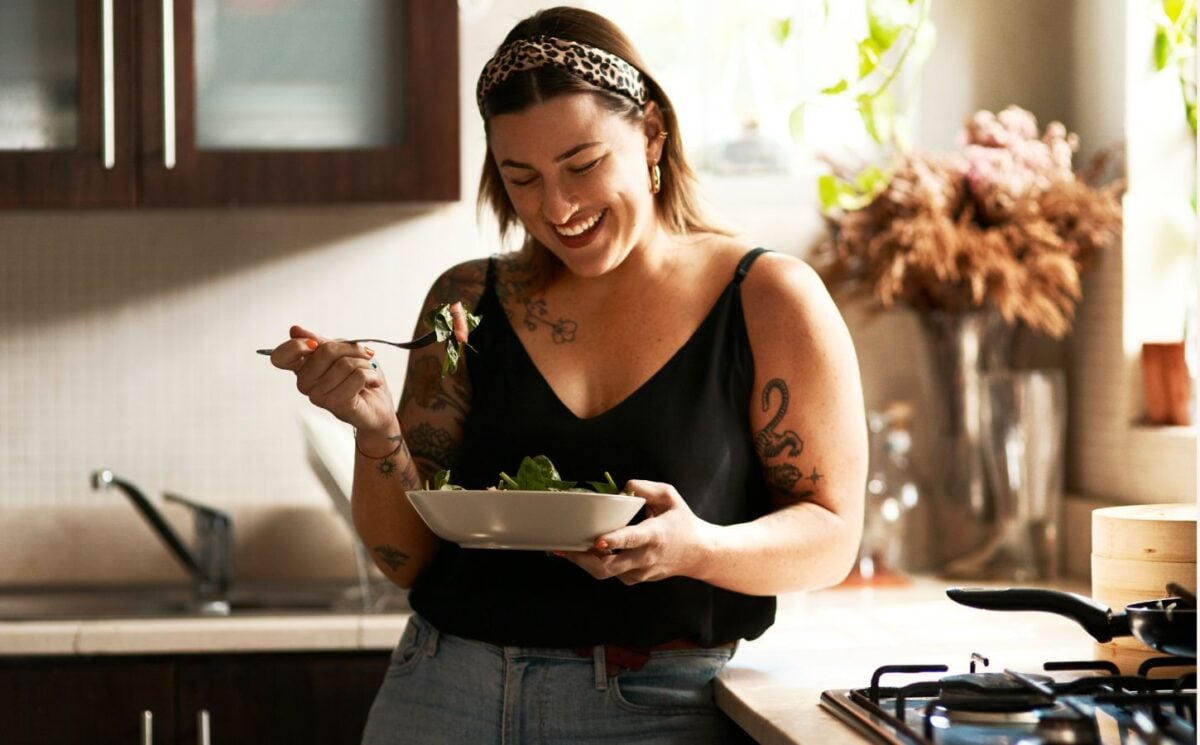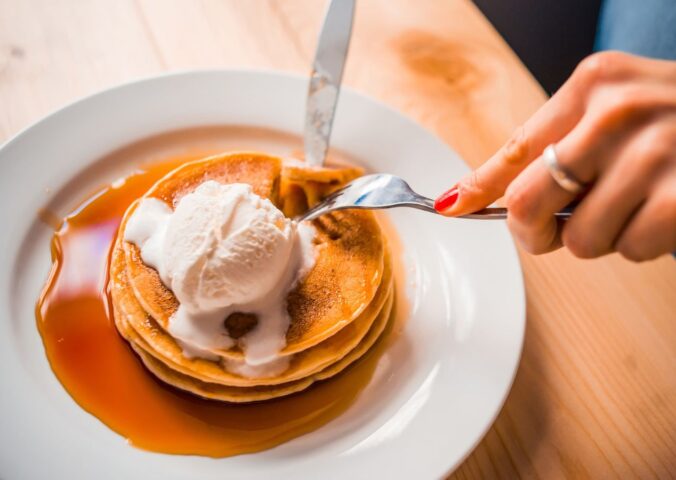Some people spend loads of money trying to add years to their lives. But gaining extra time on Earth could be as simple as eating more beans.
Dan Buettner, a National Geographic explorer and journalist, described beans as “the ultimate longevity food” in a recent Instagram post. Buettner has written several books on the diets of people living the longest, healthiest lives in the world’s “blue zones.” He notes in the post that beans are “a staple in every long-living culture.”
Research shows that people could gain four extra years of life by eating a cup of beans a day, said Buettner. According to one study, for every 20g increase in daily consumption of beans, there was a seven to eight percent reduction in risk of death among older people. So what makes beans such an incredible longevity superfood? A more recent meta-analysis found that multiple studies show a link between eating more legumes and lower risk of death. Beans are great for your heart, too, as eating them four or more times a week can lower the risk of heart disease by 22 percent.
So what makes beans a longevity superfood?
Read more: Eating A Higher Ratio Of Plant Protein Supports Heart Health, Finds Study
Dietary powerhouses

As Buettner points out, beans are complex carbohydrates and are packed with protein. Complex carbs, made up of fiber and starches, break down slowly in the digestive system, helping it to absorb vitamins and minerals, and providing protective benefits. Beans are a type of pulse, as are lentils and peas, and all these fall broadly under the category of legumes. They are the edible seed of the legume plant.
Many beans are a good source of resistant starches, which support gut health as they are fermented by microbes in the large intestine. This process produces short-chain fatty acids that can help lower the risk of colorectal cancer, one of the most common types of cancer.
Most people don’t get enough fiber in their diet, which can lead to a higher risk of diseases including some cancers and cardiovascular disease, as well as systemic inflammation. Eating a high-fiber diet is essential for digestive health, can lower cholesterol, regulate blood sugar levels, and help maintain a healthy weight. A diet high in fiber has been linked to a lower risk of death from cardiovascular disease, respiratory illnesses, and even infectious diseases.
Read more: 5 Elite Vegan Athletes Weigh In On The Best Foods For Protein
Legumes are an excellent source of plant protein. Soybeans in particular have a huge amount, with around 31g per cup, while others such as chickpeas and black beans containing around 15g. Particularly when paired with other high-protein plant foods such as whole grains, beans are a great replacement for meat. One analysis found that per serving, eating beans as a meat replacement reduces chronic disease risk by 5 percent.
Cheap and sustainable
Not only are beans very good for you, they are cheap and good for the environment. While some plant-based meat alternatives can be expensive, beans are one of the cheapest foods available, and give you the most bang for your buck nutritionally. An analysis of the cost benefits of replacing meat with unprocessed beans found that the beans cost 88 percent less than beef and 72 percent less than chicken.
Growing beans for human consumption takes up far less land and water than animal products, and produces significantly fewer greenhouse gas emissions. On top of that, beans fix nitrogen in the soil, which enriches the soil and helps plants to grow.
While beans may be a staple food in some parts of the world, in others they are a seriously underutilized ingredient. On average, people in the UK buy only 30g of canned beans and pulses a week. A cup of cooked beans is between 150 to 190g, so 30g a week is far less than Buettner’s recommended cup a day.
Best types of beans
While all beans are good for you, some have higher proportions of protein or fiber than others. Soybeans come out on top for protein, but have slightly less fiber, at 10.3g per cup, compared to some other beans. Kidney beans have 13.1g of fiber, for example, while lentils have 15.6g.
Beans are packed with vitamins and minerals, too, in varying amounts. Most are a good source of iron, but once again soybeans take the lead by delivering 49 percent of your daily iron needs. Manganese, vitamins B1 and B9, copper, and zinc are among the other nutrients you can get from beans.
If you’re looking to get more beans in your diet, try these caramelized onion butter beans, or add cannellini beans to your vegan mac and cheese. Foods made from beans such as tofu and tempeh are also a great way to up your bean intake. Combine tempeh and black beans to make a satisfying burger, or give this tandoori tofu traybake a go.
Read more: Healthy Plant-Based Diets Lower Risk Of Death From Cardiometabolic Disorders, Finds Study






